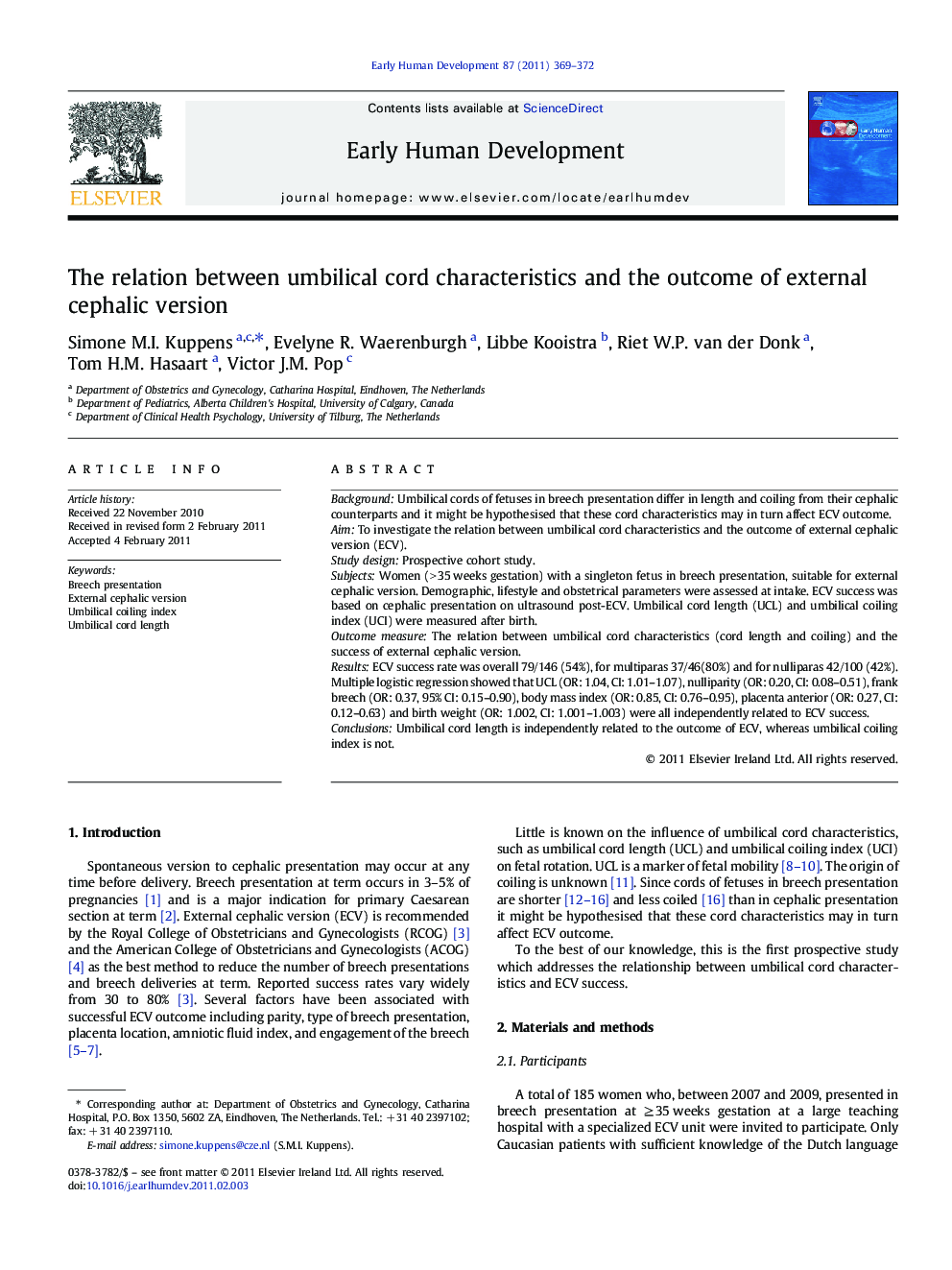| Article ID | Journal | Published Year | Pages | File Type |
|---|---|---|---|---|
| 3917127 | Early Human Development | 2011 | 4 Pages |
BackgroundUmbilical cords of fetuses in breech presentation differ in length and coiling from their cephalic counterparts and it might be hypothesised that these cord characteristics may in turn affect ECV outcome.AimTo investigate the relation between umbilical cord characteristics and the outcome of external cephalic version (ECV).Study designProspective cohort study.SubjectsWomen (> 35 weeks gestation) with a singleton fetus in breech presentation, suitable for external cephalic version. Demographic, lifestyle and obstetrical parameters were assessed at intake. ECV success was based on cephalic presentation on ultrasound post-ECV. Umbilical cord length (UCL) and umbilical coiling index (UCI) were measured after birth.Outcome measureThe relation between umbilical cord characteristics (cord length and coiling) and the success of external cephalic version.ResultsECV success rate was overall 79/146 (54%), for multiparas 37/46(80%) and for nulliparas 42/100 (42%). Multiple logistic regression showed that UCL (OR: 1.04, CI: 1.01–1.07), nulliparity (OR: 0.20, CI: 0.08–0.51), frank breech (OR: 0.37, 95% CI: 0.15–0.90), body mass index (OR: 0.85, CI: 0.76–0.95), placenta anterior (OR: 0.27, CI: 0.12–0.63) and birth weight (OR: 1.002, CI: 1.001–1.003) were all independently related to ECV success.ConclusionsUmbilical cord length is independently related to the outcome of ECV, whereas umbilical coiling index is not.
